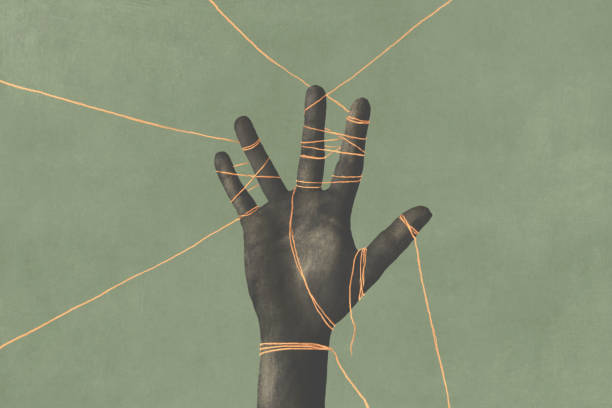Do Not Let Someone Else's Words Be Your Life Sentence

There was once a girl named Elara, raised in a small coastal town where the wind whispered secrets through pine trees and the sea spoke in waves that never ceased. From a young age, Elara lived with stories. She didn’t just read books—she breathed them. She scribbled poems on napkins, built fables out of seashells, and spoke to the moon in metaphors.
Her dream was clear: she wanted to write. Not for fame, not for praise, but because something deep inside her pulsed with a quiet need to give shape to the invisible, to name the unspoken.
When she was fourteen, she finally mustered the courage to show her favorite teacher a story she had been working on for weeks. It was a tale about a boy who could hear the thoughts of trees and a river that remembered the grief of every creature who had ever wept beside it.
The teacher read it in silence. He didn’t look up. Then he gave a half-smile and said, “You’re imaginative, sure. But writing like this? It’s not a real skill. Maybe try science. That’s more practical.”
A single sentence. Thirteen words. But they landed like a verdict.
From that moment on, Elara stopped writing.
She still loved language, still saw stories in the clouds and poetry in silence—but she no longer trusted her voice. She would hear his words every time she held a pen. “It’s not a real skill.” They echoed like a prophecy, like an invisible chain that bound her hands before they even touched paper.
Time moved forward. She grew up, left the town, went to university, and got a job in finance. She was competent, reliable, efficient. But something in her remained untouched. The inner world that once bloomed with color had faded into grayscale.
Whenever she felt a flicker of longing—at the sight of a beautiful sentence, a moving novel, or a blank notebook—another voice would rise inside her: Don’t be foolish. That door is closed.
And she believed it.
Years later, in her thirties, Elara returned home to help care for her aging father. While cleaning the attic, she found an old box of childhood belongings—pressed flowers, faded photos, and at the very bottom, the story she had written all those years ago.
The paper was yellowed, the ink slightly smudged. But the words were alive. Her fourteen-year-old voice leapt from the page—vivid, raw, full of wonder. She read the story, not as a critique, but as a mother reads a child’s first drawing: with tenderness.
She wept.
Not because the story was bad, but because she had let someone else silence the most sacred part of her. Because she had taken another person’s opinion and mistaken it for truth. Because she had handed her dream to a stranger and watched it wither in his shadow.
In the Dhammapada, the Buddha teaches:
“By oneself is evil done, by oneself is one defiled. By oneself is evil left undone, by oneself is one purified. Purity and impurity depend on oneself. No one can purify another.” (Dhammapada, Verse 165)
The world is full of voices that want to tell you who you are—what you can do, what you cannot, what you’re worth. Some are well-meaning. Others careless. But none of them live in your heart.
When you accept someone else’s judgment as your truth, you build your own prison, brick by brick. And yet, the key has always been in your hands.
Elara began to write again. Slowly at first. She wrote late at night, when the house was quiet. She filled journals with fragments—half-formed thoughts, forgotten memories, gentle dreams. She didn’t write to prove herself. She wrote to remember herself.
And over time, her voice returned—not the same as before, but deeper, wiser, more patient. Some of her stories were published. Most were not. But that didn’t matter. She had already won.
As the Buddha said in the Majjhima Nikāya:
“Whatever is not yours—let it go. Your letting go of it will lead to your long-term welfare and happiness.” (MN 22)
Let go of the words that wounded you.
Let go of the labels that never fit.
Let go of the sentences that turned into walls.
Discover More Profound Insights and Open New Horizons for the Soul.
You are not the sum of what others see. You are not the worst thing anyone ever said about you.
You are vast, evolving, and alive—with a voice that belongs to no one else but you.
Elara learned this not by fighting the past, but by returning to her own heart. And in doing so, she rewrote not just her story—but her freedom.
And so can you.
Recommended Reads to Nourish the Soul:
Exercise for Seniors: Daily exercise to build balance and boost confidence, yoga aspect
21 Easy Three-Step Dinner Recipes for Weight Loss: Helping You Lose Weight Effectively
Yoga Healing: 100-Style Yoga Provides Comprehensive Care From Shoulders And Neck To Meridians
Keep exploring more inspiring content to enrich your mind and spark new insights:
Top Meditation Techniques for Better Sleep
The Five Types of Negative Energy in Parents That Weigh Most Heavily on Their Children
How Can We Keep All Relationships at Their Best?
Understanding the Benefits of Journaling for Emotional Health
Creating a Relaxation Space at Home: Tips and Ideas
Wake Up to Yourself : The Key to Happiness and Self-Improvement
How to Manage Emotional Overload in a Stressful World by Meditation
4 Mindfulness Techniques to Help Break the Cycle of Negative Emotions
Choosing Complain: A Path to Life Ruins
Mindful Breathing Exercises to Lower Blood Pressure Naturally
The Science of Mindfulness: How It Impacts Emotional Health
Meditation and Health: 10 Minutes a Day Can Change Your Life







